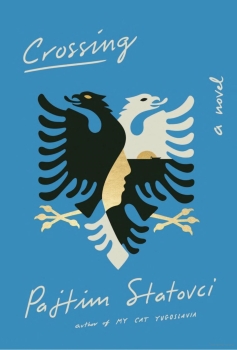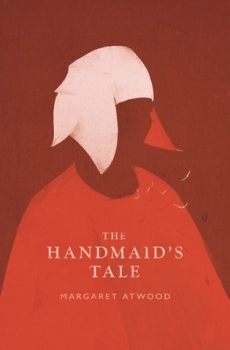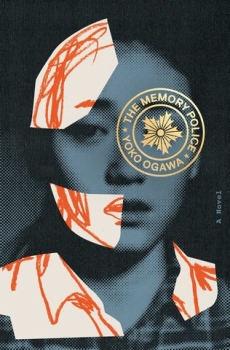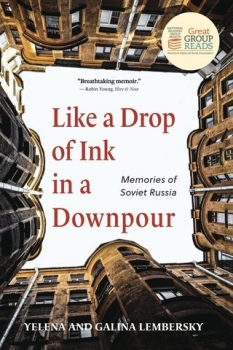Crossing by Pajtim Statovci
Crossing is the second novel published by Pajtim Statovci, who writes in Finnish: and translated into English by David Hackston. Crossing won the Toisinkoinen Literature Prize in 2016, and in English translation was a finalist for the National Book Award in 2019.
Crossing is a work of fiction, set in two time periods, before and after Bujar (pronounced Booyar), a young Kosovar Albanian, flees the Balkans for the West around 1991 with his closest friend, Agim. Before their journey across the Adriatic Sea, the book offers insight into Albanian culture and experience; after that first journey, it follows characters searching for identity and affirmation in as they try to settle in Italy, Spain, Germany, Finland and the United States.
Reviews have been positive, calling Crossing “a brutal portrayal of the immigrant experience: a portrayal that is steeped in shame, deep loss and rage” (Sonia Christensen, The Columbia review); in the New York Journal of Books, Michael Nava called it “challenging and brilliant.” In one of the most detailed reviews, which addresses both the Finnish original and the English translation, Jenny Råback calls Crossing “a raw and lyrical portrayal of an individual’s desperate scavenging for uniqueness in a world that mistakenly believes the reality of a person’s identity is unchanging, and so sentences those with fluid identities to a subhuman existence.”
The book club is hosted at the Tempe Public Library, convened by Keith Brown. Keith_brown@asu.edu. For the latest book club meeting register at: tempepubliclibrary.org and click Event Calendar.
REGISTER for our upcoming book club on at 3 PM on April 28, 2024 where we will discuss The Orphan Master's Son by Adam Johnson
Some start-up questions for discussion.
- Statovci’s title, in Finnish, was “Heart of Tirana.” Crossing was his U.S. publishers’ suggestion. How would that change your reading of the book?
- How do you understand the Bujar-Agim relationship?
- Several reviewers quote the narrator’s statement “Nobody has to be the person they were born; we can put ourselves together like a jigsaw.” Do Bujar’s experiences tend to confirm or deny that?
- Why does Bujar keep changing his national origin story, wherever he goes? What prompts him to tell Tanja about his Albanian origin? (224-226)
- The novel draws on Albanian folklore and legend (including the famous story of Doruntina); and also paints a vivid picture of conditions in Albania after the end of communism. How important is this for understanding the narrator’s journey?
- At what points was Bujar most sympathetic as a character? At what points were they hardest to like?
- What’s your understanding of gender in Bujar’s sense of self? How, if at all, does it change?
Additional resources:
Jenna Råback’s review in Asymptote.
A conversation with Pajtim Statovci and his translator, David Hackston.

PAJTIM STATOVCI was born in Kosovo to Albanian parents in 1990. His family fled the Yugoslav wars and moved to Finland when he was two years old. He holds an MA in comparative literature and is a doctoral researcher at the University of Helsinki. His first book, My Cat Yugoslavia, won the Helsingin Sanomat Literature Prize for best debut novel; his second novel, Crossing, was a finalist for the National Book Award; and Bolla was awarded Finland’s highest literary honor, The Finlandia Prize. In 2021, Bolla was a finalist for The Kirkus Prize for Fiction.




